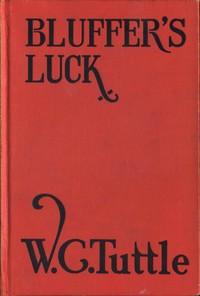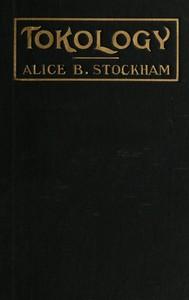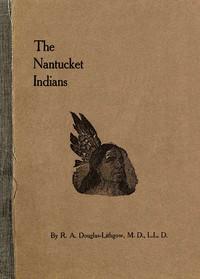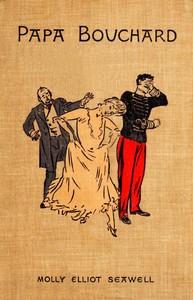|
|
Read this ebook for free! No credit card needed, absolutely nothing to pay.Words: 54044 in 37 pages
This is an ebook sharing website. You can read the uploaded ebooks for free here. No credit cards needed, nothing to pay. If you want to own a digital copy of the ebook, or want to read offline with your favorite ebook-reader, then you can choose to buy and download the ebook.

: Bluffer's luck by Tuttle W C Wilbur C - Western stories; Cowboys Fiction; Hartley Hashknife (Fictitious character) Fiction; Stevens Sleepy (Fictitious character) Fiction@FreeBooksThu 08 Jun, 2023 "Imperialism" "The Tracks of Our Forefathers" A PAPER READ BY CHARLES FRANCIS ADAMS TUESDAY, DECEMBER 20, 1898 BOSTON DANA ESTES & COMPANY 210 SUMMER STREET 1899 "IMPERIALISM" "THE TRACKS OF OUR FOREFATHERS." What the feast of the Passover was to the children of Israel, that the days between the nineteenth of December and the fourth of January--the Yuletide--are and will remain to the people of New England. The Passover began "in the first month on the fourteenth day of the month at even," and it lasted one week, "until the one and twentieth day of the month at even." It was the period of the sacrifice of the Paschal lamb, and the feast of unleavened bread; and of it as a commemoration it is written, "When your children shall say unto you, What mean ye by this service? that ye shall say, It is the sacrifice of the Lord's passover, who passed over the houses of the children of Israel in Egypt, when he smote the Egyptians. Now the sojourning of the children of Israel, who dwelt in Egypt, was four hundred and thirty years." And thus, by their yearly Passover, were the Jewish congregations of old put in mind what farewell they took of the land of Egypt. Is there any better use to which the Passover anniversary can be put than to retrospection? "And when your children shall say unto you, What mean you by this service? ye shall say, It is the sacrifice of the Lord's passover, when he smote the Egyptians, and delivered our houses." So the old story is told again, being thus kept ever green in memory; and, in telling it, the experiences of the past are brought insensibly to bear on the conditions of the present. Thus, once a year, like the Israelites of old, we, as a people, may take our bearings and verify our course, as we plunge on out of the infinite past into the unknowable future. It is a useful practice; and we are here this first evening of our Passover period to observe it. This, too, is an Historical Society,--that of Lexington, "a name," as, when arraigned before the tribunal of the French Terror, Danton said of his own, "tolerably known in the Revolution;" and I am invited to address you because I am President of the Massachusetts Historical Society, the most venerable organization of the sort in America, perhaps in the world. Thus, to-night, though we shall necessarily have to touch on topics of the day, and topics exciting the liveliest interest and most active discussion, we will in so doing look at them,--not as politicians or as partisans, nor from the commercial or religious side, but solely from the historical point of view. We shall judge of the present in its relations to the past. And, unquestionably, there is great satisfaction to be derived from so doing; the mere effort seems at once to take us into another atmosphere,--an atmosphere as foreign to unctuous cant as it is to what is vulgarly known as "electioneering taffy." This evening we pass away from the noisy and heated turmoil of partisan politics, with its appeals to prejudice, passion, and material interest, into the cool of a quiet academic discussion. It is like going out of some turbulent caucus, or exciting ward-room debate, and finding oneself suddenly confronted by the cold, clear light of the December moon, shining amid the silence of innumerable stars. Addressing ourselves, therefore, to the subject in hand, the question at once suggests itself,--What year in recent times has been in a large way more noteworthy and impressive, when looked at from the purely historical point of view, than this year of which we are now observing the close? The first Passover of the Israelites ended a drama of more than four centuries' duration, for "the sojourning of the children of Israel, who dwelt in Egypt, was four hundred and thirty years; and at the end of the four hundred and thirty years all the hosts of the Lord went out from the land of Egypt." So the Passover we now celebrate commemorates the closing of another world drama of almost precisely the same length, and one of deepest significance, as well as unsurpassed historic interest. These world dramas are lengthy affairs; for, while we men are always in a hurry, the Almighty never is: on the contrary, as the Psalmist observed, so now, "a thousand years in his sight are but as yesterday when it is past, and as a watch in the night." The drama I have referred to as this week brought to its close, is that known in history as Spanish Domination in America. It began, as we all know, on the twenty-first of October, 1492; it has been continuous through six years over four centuries. It now passes into history; the verdict may be made up. Free books android app tbrJar TBR JAR Read Free books online gutenberg More posts by @FreeBooks

: The Nantucket Indians by Douglas Lithgow R A Robert Alexander - Indians of North America Massachusetts; Nantucket Island (Mass.) History@FreeBooksThu 08 Jun, 2023

: Rebilius Crūsō by Defoe Daniel Newman Francis William Translator - Shipwreck survival Fiction; Islands Fiction; Crusoe Robinson (Fictitious character) Fiction; Atlantic Ocean Fiction; Adventure stories; Castaways Fiction; Latin language Readers@FreeBooksThu 08 Jun, 2023
|
Terms of Use Stock Market News! © gutenberg.org.in2025 All Rights reserved.






